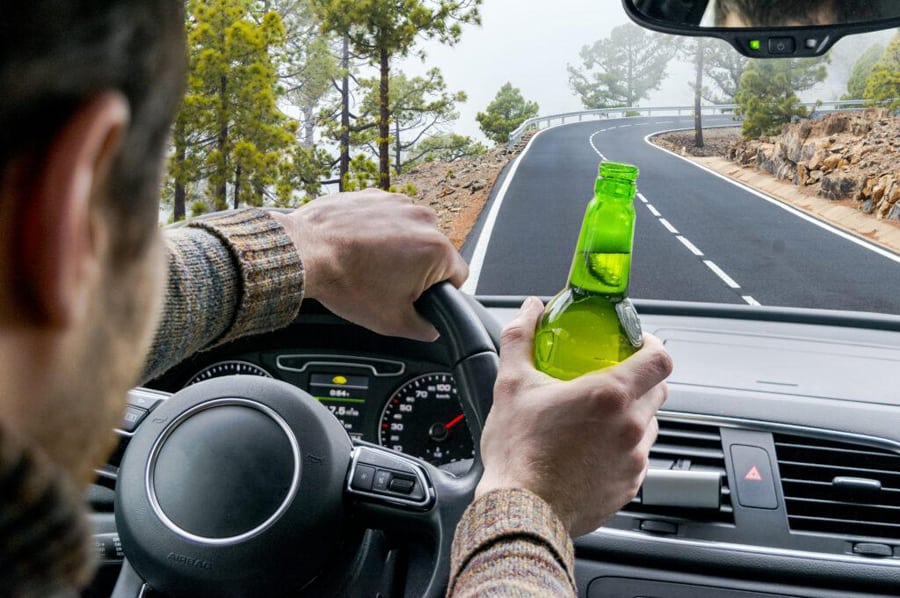-
Location: New Jersey DWI Lawyer 609 Main St. Toms River, NJ - 08753
-
Phone:
201-214-4444
732-282-1394 (1DWI)
Driving while intoxicated (DWI) or driving under the influence (DUI) is a serious offense that carries severe consequences in New Jersey. If caught driving with a blood alcohol concentration (BAC) of 0.08% or higher, you could face penalties, including fines, jail time, license suspension, and DUI education programs. New Jersey statute N.J.S. 39:4-50 outlines DWI/DUI laws.
The Legal Limit For Blood Alcohol Concentration (BAC) In New Jersey
In New Jersey, the legal limit for BAC is 0.08%. If you’re driving with a BAC of 0.08% or higher, you could be charged with a DWI/DUI. For those under the age of 21, a separate additional offense defined under N.J.S. 39:4-50.14 proscribes driving with a BAC level between 0.01 and 0.08%. Commercial drivers, on the other hand, have a legal limit of 0.04%. Consult with a New Jersey DUI lawyer so that you fully understand possible penalties and viable defense strategies.
Effective December 1, 2019 penalties imposed at sentencing under N.J.S. 39:4-50 were revised in accordance with published research based on data showing that installation of an ignition interlock device is significantly more effective than punitive driver license suspension at changing driver behavior away from habitually driving under the influence.
The sponsors of the statutory amendment enacted a profound statement of reasons for the change, including a compassionate balancing of the imperative of public safety and the drastic effect on otherwise law-abiding residents faced with an inability to work.
“39:4-50.16a. Findings, declarations relative to certain drunk drivers The Legislature finds and declares that: a. State law has required repeat drunk drivers and drunk drivers with a high blood alcohol concentration (BAC) to install an ignition interlock device since January 2001, but installation of these devices is not mandatory for other first time offenders. b. Because a majority of drunk drivers, including first time offenders, often continue to drive with suspended licenses, ignition interlock devices are more effective in deterring drunk driving than license suspension. c. Ignition interlock devices are paid for by the offender and constitute a low cost solution to a dangerous and often fatal activity that imposes large social and economic costs on society. Studies indicate that the potential for interlock device programs to prevent alcohol-involved driving and alcoholrelated crashes is most significant when the program is applied to a broader cross-section of offenders and a higher proportion of offenders are required to install the devices. To protect the public safety, states that currently do not require mandatory participation for all first time offenders should adopt strong interlock device programs to prevent future costly alcohol-related fatal crashes. d. For example, according to a recent national study by the Insurance Institute for Highway Safety (IIHS), state laws mandating interlock devices for drunk drivers reduced the number of drivers in fatal crashes with a blood alcohol content of 0.08 percent or higher by 16 percent compared to states with no interlock law, three percent when ignition interlock devices were required for repeat offenders, and eight percent when required for first time and repeat offenders. e. Reportedly, ignition interlock devices have prevented more than 73,740 attempts to drive with a BAC over the legal limit of 0.08 percent in this State over the past 11 years. f. Numerous organizations support requiring the use of ignition interlock devices by all convicted drunk drivers, including all first-time offenders, including: Mothers Against Drunk Driving, Advocates for Auto and Highway Safety, American Automobile Association, American Trucking Association, Auto Alliance, Centers for Disease Control and Prevention, Foundation for Advancing Alcohol Responsibility, Insurance Institute for Highway Safety, International Association of Chiefs of Police, National Academy of Sciences, National Football League, National Safety Council, and National Transportation Safety Board. g. Therefore, it is fitting and proper to require all first time drunk driving offenders in this State, not just high BAC offenders, to install an ignition interlock device.”
History: Added by L. 2019, c. 248,s. 1, eff. 12/1/2019.


